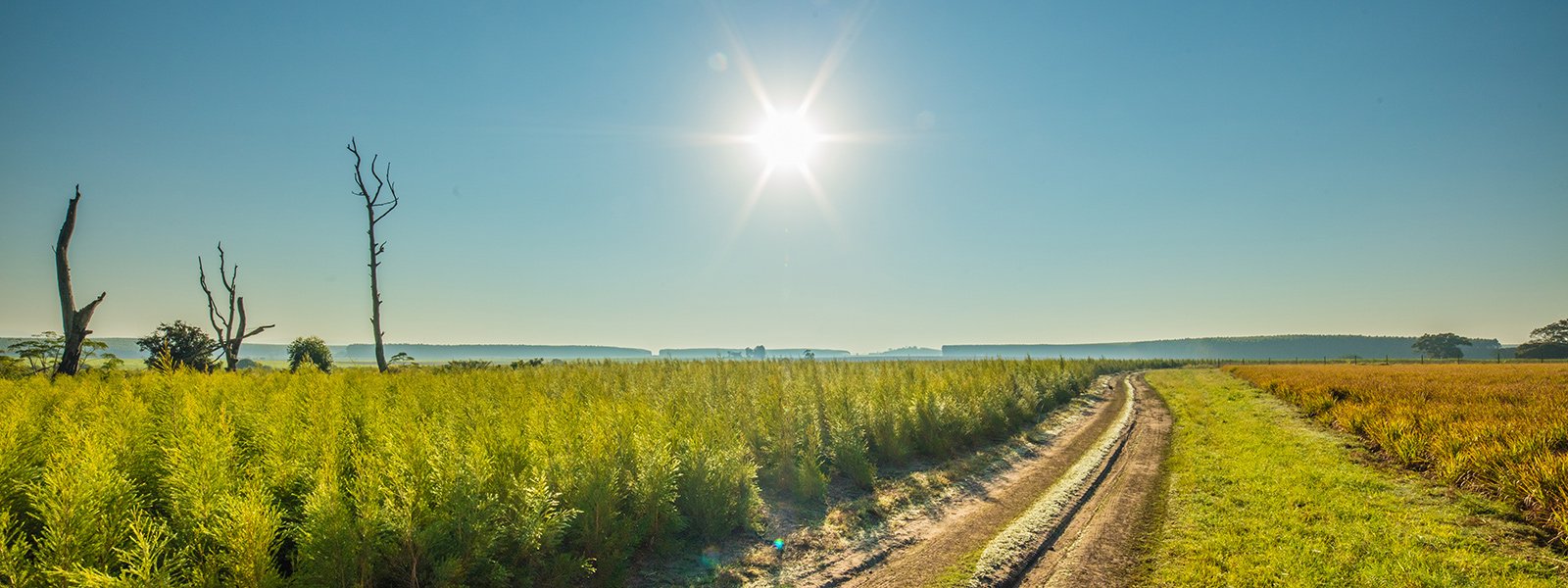
Our Zululand Farm
SOiL is not merely a brand of essential oils who buy in bulk and repackage for retail. We actually farm many of the plants we use and distil the oils on our organic farm in Zululand. We understand essential oils intimately and know what determines quality. We demand the same quality from the other organic farmers that we work with.
Translated into English the SOiL family farm’s name appropriately means “Green Hill”. We are situated in the heart of Zululand (north eastern South Africa) overlooking the Emakhoseni Valley, the sacred burial place of Zulu kings. The farm’s isolation from industrial centres means it has some of the cleanest air and water in South Africa, enhancing the quality of our products.
The quality of essential oils is affected by many factors including, but not limited to, altitude, soil type and climate. We undertook two years of extensive trials to establish which plants, when grown in our soils, would yield a high-quality oil. Fortunately, our soils are fertile, and our moderate climate ensures that the oils we produce are of a high quality.
1
The Nursery
The distillation of essential oils is a relatively small industry in South Africa. There are also very few nurseries which grow seedlings using organic methods. As a result, we have built our own. Having our own nursery also ensures that we have the best quality organic seedlings for our fields. The seedlings are made by taking cuttings from the tips of mother stock plants. These are inserted into an organic growing medium. The cuttings are watered by automated mist sprayers and are kept in the nursery for an average of six weeks. Once the cuttings have rooted, they are planted out into the fields.
2
Fields of aromatic plants
In order for a field to be certified organic it must have been free from chemical fertilisers and poisons for at least three years. We are fortunate that the fields where our oils are grown have been free from chemicals for much longer than that! The seedlings from the nursery are planted out into the fields by hand. Each hectare of field requires tens of thousands of plants which makes this labour-intensive work. Added to this any weeds that grow up cannot simply be killed with chemicals; they too must be removed by hand. However, this type of labour-intensive agriculture is just what is needed in rural Zululand where unemployment pressures persist. When ready, the plants are harvested by a tractor drawn cutter. The plants are then gathered by hand and loaded into bags to be taken to the distillery.
3
The Distillery
At the distillery the bags are hoisted over large stainless-steel distillation vessels, or stills, into which the organic plant material is emptied. These stills can hold about a ton of plant matter. Once the stills are closed, steam is let into the still from the bottom. The steam moves upwards through the plant material causing the oils in the plant to vaporise. The mixture of steam and oil then leaves through the top of the still and is passed through a condenser which cools it, changing its form from steam into liquid. The liquid (mainly water) then flows into a separator where the oil, being lighter than water, floats to the surface. The oil is then drawn off from the top of the separator, leaving only the water which is known as floral water or hydrosol. We use an open system which means that no pressure can build up in the system; resulting in a slow and relatively cool extraction. Together with our stainless-steel processing facility this ensures that the volatile organic oils retain all of their therapeutic qualities.




